Rachelle Ayala's Blog, page 76
November 8, 2012
#NewRelease Jordan's Wings by Dariel Raye
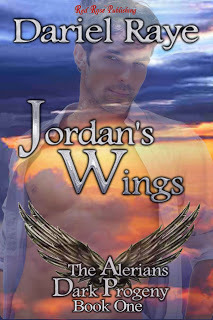 “The Alerians – Dark Progeny: Jordan’s Wings”
“The Alerians – Dark Progeny: Jordan’s Wings”Jordan Taylor is a feisty, take charge, Rubinesque beauty with a tough façade, but after a string of lackluster relationships, her dream of a man who truly loves and appreciates her strength seems impossible…Until she meets Canaan, the man her fiancé claims is his best friend! Instinctively, she knows her neat, if lackluster life is about to change.
Born more than 200 years ago, Canaan looks like an angel but he’s far from it. In his world, the ratio of men to women is 500 to 1, and although he’s a superior being, he’s willing to break the most sacred law of his brothers, even drink human blood, to have one meant for him alone.When he meets Jordan, he knows she’s the one he’s been searching for. To claim her, Canaan will have to betray his friend, humble himself enough to win her love, and risk his very life.
 Genesis: Who are “The Alerians – Dark Progeny?”
Genesis: Who are “The Alerians – Dark Progeny?”
“The Nephilim were on the Earth in those days – and also afterward – when the Sons of God went to the daughters of men and had children by them. They were the heroes of old, men of renown.” NIV Gen. 6:4
Biblical scholars espouse a number of opinions about the literal and theological meaning of this verse. Some believe “sons of God” were those men who were believers, attempting to live according to The One God’s laws. Continuing with this interpretation, the “daughters of men” were unbelievers who just happened to be female and sired the children of these otherwise “Godly” men. As a paranormal romance writer, however, I find the other group of scholars’ beliefs much more interesting. According to some, the Nephilim were the offspring of angels, able to shift their naturally genderless form, and sire offspring with human women. As this coupling was forbidden, the offspring were cursed, evil, and eventually banished from the earth. In fact, some believe they were the main catalyst for The Great Deluge. They brought so much evil into the world that the great flood occurred to destroy them and cleanse the earth (dark progeny). Imagine angelic beings with knowledge and abilities far beyond human understanding siring children with human women. What would these children be like? “The Alerians – Dark Progeny.” Survivors - Descendants of the original Nephilim. Their home is a dimension set apart from heaven called Aleria. There, they live with the curse of their ancestors. As repentance for their forefathers’ sins, they have lived for centuries, engaged in the war against unrepentant fallen angels.
Human interaction is forbidden, and they face eventual extinction. Only one female is born for every 500 males. These females are treated like royalty, mating with the highest ranking males. The majority of males live as warriors and “Seekers,” no hope of ever feeling the touch of a woman. But things are about to change…
“The Alerians – Dark Progeny: Jordan’s Wings” is available from Red Rose Publishing
Visit Dariel at her Blogs: http://www.pendarielraye.blogspot.comhttp://www.darkparanormalromanceseries.comGoodreads Twitter
Check out two new reviews for Dariel's Books:
http://darkparanormalromanceseries.com/2012/11/02/five-star-review-of-dark-sentinels-book-one-sable-from-prg/
http://www.pendarielraye.blogspot.com/2012/11/five-5-star-review-from-satin-sheets.html
Published on November 08, 2012 00:00
November 7, 2012
#AuthorInterview Mario Gomez writes about the Mob
I'm happy to welcome Mario Gomez to Rachelle's Window. Mario has lived the life of a high powered financier from Wall Street, to Mexico City, to Medellin, Colombia. But all of those accomplishments pale to his ability to weave magic out of words.
Mario, you've been writing for eight years. Tell us about your journey as a writer and how your debut novel, The Consigliere.
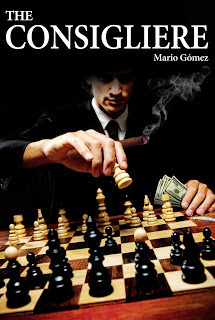
My journey as a writer has been tumultous, as I am sure it is for many. But I've always been a fan of fiction, not so much because it entertains, but because it exposes us to the "politically incorrect" that is often more real than what we see on the news.
About eight years ago I stepped away from finance to pursue something more that financial profit. I was after…I don't know…you could call it clarity. I had just lost my wife and daughter, my family, my motivation for working 16 hours a day, and the devastating upset to my life caused me to question everything. I mean, what was the purpose of accumulating wealth if it couldn't protect me from life's uncertainties? From loss?
What began as a therapeutic way to pass the time, turned into a doorway for expressing my disdain for the injustices in society that I began to really see for the first time.
How did you do the research? Was it dangerous to contact members of the notorious gangs you wrote about?
The research wasn't so difficult because most of it was already done long before writing a novel ever occurred to me. Not unlike my protagonist, Faustino, my college roommate at NYU was the son of a made mafia member for the Gambino crime family. That gave me an opportunity to meet members of organized crime through family gatherings and social events. And through countless conversations with my roommate, by the time I completed my undergraduate studies I had a very clear understanding of what made organized crime so successful and, to a large extent inevitable.
When it came to researching the illegal narcotics trade I went to the source: Columbia. I used contacts I had made over the years to get invited to the actual coca fields. From there I learned how the plant is processed into a paste and baked into a powder. I interviewed the people who harvested the crop and then followed the product into Mexico, all the way to major distribution points throughout the United States.
Throughout this process I never felt that I was in any danger. Everything was so professionally organized that I could've been with a shipment of cigarettes, liquor, or pharmaceutical meds.
What is the underlying theme in The Consigliere?
Aside from the plot line of following Faustino through the intrigues of his loyalties, ambitions, and his aim to thrive and survive, I show organized crime for what it is: business as usual. Thanks to Hollywood and media we have a very distorted understanding of why organized crime exists; and why law enforcement will never be the remedy. Mafia or organized crime isn't the problem, it's the result of society oppressed by the all encompassing wealth factor of a capitalist society. Our only response to crime has been to create more restrictive laws and open more prisons, making criminality a lucrative, multi-trillion-dollar enterprise for opportunists on both sides of the societal spectrum—see my blog post, Prison Panacea, for more details. And this is the underlying theme of The Consigliere.
You mention in your blog that women are enthusiastic about your book. Why do you think that is so?
You know, I've asked this question enough times that I might actually be close to an answer. For one, I write modern, strong-willed women. Both Michelle and Marsella define a liberated era of being a woman—not the weaker sex, but rather the other sex. Secondly, I find that woman are attracted to and intrigued by the dangerous, alpha male. I'm by no means an expert on woman, but I've spent most of my adult life close to powerful, sometimes dangerous men, and have seen the effect they have on woman—at least, over the short term. Or it could just be that women are the only ones patient enough to read my epic novel.
That's interesting. I have a similar experience, having written Michal's Window as a romance for women only to find that men enjoy the action and adventure as well as insight into King David, the lover and warrior. What are you working on now?
At the moment I'm working on some non-profit projects aimed at drawing private capital into education as a retrievable investment. However, as far as writing is concerned, on October 12th I release a satire novella, The Perfect Martini, on all the eBook platforms. I'm also working on two full length novels: The Cartel, the sequel to the Consigliere; and Broken Oaths, a stand alone novel that delves into how drug cartels operate at the upper echelons of politics.
Have you ever been in love with any of your characters? Tell me about her and why you find her fascinating.
Though my fictional characters are typically based on people I've experienced I don't know that I would use love to too loosely. But since you ask, the character Olivia comes to mind. She was based exactly on a young love from more than 15 years ago.
I was spending the week in my family's condominium in Acapulco. She was staying in the condo next to ours and we met on our adjacent balconies. She needed butter and I had transportation. We spent the whole afternoon together and watched the sun set from atop of some cliffs overlooking the ocean. I most fascinated by her innocence, and her unpretentious beauty. But she was from Costa Rica and over time we lost touch.
How much real life experience did you bring into your story? And if you had known the ending in real life, would you have done anything different?
There is quite a lot of real life experiences revisited in The Consigliere, from the standpoint of the underlying corruptions I waded through in the world of finance. Some of the clients and interests I represented for many years were criminal, but because they were wealthy it was overlooked. Recently I wrote an article titled The Game of Grab, where I argued that we are a morally confused society. The old fashioned values and codes of uprightness no longer grip the moral hearts of men. The new corporate era has rewritten these codes to include a caveat of indifference: wherever the standards of the monied life prevail, the man with the money, regardless of how he comes by it, will eventually be respected, maybe even celebrated. As C. Wright Mills wrote in 1956, [Money] is the one unambiguous criterion of success, and such success is still the sovereign American value. Is there any wonder why crime and corruption prevail?
Had I known the ending—if such a thing exists—I wouldn't do anything differently, even despite my hard losses. Because loss is what, pulled the veil from my eyes. I see clearly because of my pain.
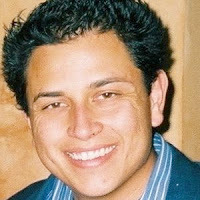 You've dedicated your life to philanthropy. How does writing tie into what you want to accomplish?
You've dedicated your life to philanthropy. How does writing tie into what you want to accomplish?
In many ways I'm not sure that it does. I write because I have stories to tell and because I enjoy the adventure and challenge of bringing a story to life. I do donate, however, 100 percent of my royalties to the educational projects that I participate in for low income children. It's not much, but that along with my time is the best investment I've ever made.
I notice you are also into triathlons. Have you competed in any lately? Care to share results?
The last one I participated in was about 10 years ago. However, at the Olympics in London I watched Lilliana & Elsa of Spain play their hearts out against Kessey and Ross of the USA. Their efforts and synchronicity as a team were so beautiful to watch that I've actually decided to compete in a triathlon next year in either Los Cabos or Puerto Peñasco. Don't ask why watching a beach volleyball match would make me want to put my body through the gruesome strain of a triathlon, because I don't know.
I'll keep you posted on the results, though.
My main character in my third novel, Lucas Knight, is a triathlete. I just finished writing that he won Ironman Lake Tahoe in 8 hours 18 minutes. Do you think that's realistic?
Lake Tahoe...I don't envy your character Lucas Knight. The altitude alone would kill me. Eight hours is realistic, but I suggest you keep in mind the kind of life that a professional triathlete leads—very ascetic—e.g., diet, restricted sex, and the physical training aspect is a full time job. These things may step in the way of what you have in mind for your character to do.
I tell ya, sitting here in front of a laptop and munching on chocolate energy bars while imagining winning a triathlon is the life, know what I mean? It's been great talking to you. Anything else you'd like to say to readers?
Yes, I've dreamed of winning a triathlon for many years. But I'm okay with not being first. It's enough for me to push myself to the limit and finish—while still upright and breathing, of course.
As for the readers, I encourage them to visit the fictional worlds of more independent writers. Give us feedback. Even if it's harsh we appreciate the time and effort expended to help us grow and improve as writers.
is available at Amazon.com
Readers can find out more about Mario at his blog [where he reviews Michal's Window and interviews me!] and Amazon Author Page

Mario, you've been writing for eight years. Tell us about your journey as a writer and how your debut novel, The Consigliere.

My journey as a writer has been tumultous, as I am sure it is for many. But I've always been a fan of fiction, not so much because it entertains, but because it exposes us to the "politically incorrect" that is often more real than what we see on the news.
About eight years ago I stepped away from finance to pursue something more that financial profit. I was after…I don't know…you could call it clarity. I had just lost my wife and daughter, my family, my motivation for working 16 hours a day, and the devastating upset to my life caused me to question everything. I mean, what was the purpose of accumulating wealth if it couldn't protect me from life's uncertainties? From loss?
What began as a therapeutic way to pass the time, turned into a doorway for expressing my disdain for the injustices in society that I began to really see for the first time.
How did you do the research? Was it dangerous to contact members of the notorious gangs you wrote about?
The research wasn't so difficult because most of it was already done long before writing a novel ever occurred to me. Not unlike my protagonist, Faustino, my college roommate at NYU was the son of a made mafia member for the Gambino crime family. That gave me an opportunity to meet members of organized crime through family gatherings and social events. And through countless conversations with my roommate, by the time I completed my undergraduate studies I had a very clear understanding of what made organized crime so successful and, to a large extent inevitable.
When it came to researching the illegal narcotics trade I went to the source: Columbia. I used contacts I had made over the years to get invited to the actual coca fields. From there I learned how the plant is processed into a paste and baked into a powder. I interviewed the people who harvested the crop and then followed the product into Mexico, all the way to major distribution points throughout the United States.
Throughout this process I never felt that I was in any danger. Everything was so professionally organized that I could've been with a shipment of cigarettes, liquor, or pharmaceutical meds.
What is the underlying theme in The Consigliere?
Aside from the plot line of following Faustino through the intrigues of his loyalties, ambitions, and his aim to thrive and survive, I show organized crime for what it is: business as usual. Thanks to Hollywood and media we have a very distorted understanding of why organized crime exists; and why law enforcement will never be the remedy. Mafia or organized crime isn't the problem, it's the result of society oppressed by the all encompassing wealth factor of a capitalist society. Our only response to crime has been to create more restrictive laws and open more prisons, making criminality a lucrative, multi-trillion-dollar enterprise for opportunists on both sides of the societal spectrum—see my blog post, Prison Panacea, for more details. And this is the underlying theme of The Consigliere.
You mention in your blog that women are enthusiastic about your book. Why do you think that is so?
You know, I've asked this question enough times that I might actually be close to an answer. For one, I write modern, strong-willed women. Both Michelle and Marsella define a liberated era of being a woman—not the weaker sex, but rather the other sex. Secondly, I find that woman are attracted to and intrigued by the dangerous, alpha male. I'm by no means an expert on woman, but I've spent most of my adult life close to powerful, sometimes dangerous men, and have seen the effect they have on woman—at least, over the short term. Or it could just be that women are the only ones patient enough to read my epic novel.
That's interesting. I have a similar experience, having written Michal's Window as a romance for women only to find that men enjoy the action and adventure as well as insight into King David, the lover and warrior. What are you working on now?
At the moment I'm working on some non-profit projects aimed at drawing private capital into education as a retrievable investment. However, as far as writing is concerned, on October 12th I release a satire novella, The Perfect Martini, on all the eBook platforms. I'm also working on two full length novels: The Cartel, the sequel to the Consigliere; and Broken Oaths, a stand alone novel that delves into how drug cartels operate at the upper echelons of politics.
Have you ever been in love with any of your characters? Tell me about her and why you find her fascinating.
Though my fictional characters are typically based on people I've experienced I don't know that I would use love to too loosely. But since you ask, the character Olivia comes to mind. She was based exactly on a young love from more than 15 years ago.
I was spending the week in my family's condominium in Acapulco. She was staying in the condo next to ours and we met on our adjacent balconies. She needed butter and I had transportation. We spent the whole afternoon together and watched the sun set from atop of some cliffs overlooking the ocean. I most fascinated by her innocence, and her unpretentious beauty. But she was from Costa Rica and over time we lost touch.
How much real life experience did you bring into your story? And if you had known the ending in real life, would you have done anything different?
There is quite a lot of real life experiences revisited in The Consigliere, from the standpoint of the underlying corruptions I waded through in the world of finance. Some of the clients and interests I represented for many years were criminal, but because they were wealthy it was overlooked. Recently I wrote an article titled The Game of Grab, where I argued that we are a morally confused society. The old fashioned values and codes of uprightness no longer grip the moral hearts of men. The new corporate era has rewritten these codes to include a caveat of indifference: wherever the standards of the monied life prevail, the man with the money, regardless of how he comes by it, will eventually be respected, maybe even celebrated. As C. Wright Mills wrote in 1956, [Money] is the one unambiguous criterion of success, and such success is still the sovereign American value. Is there any wonder why crime and corruption prevail?
Had I known the ending—if such a thing exists—I wouldn't do anything differently, even despite my hard losses. Because loss is what, pulled the veil from my eyes. I see clearly because of my pain.
 You've dedicated your life to philanthropy. How does writing tie into what you want to accomplish?
You've dedicated your life to philanthropy. How does writing tie into what you want to accomplish?In many ways I'm not sure that it does. I write because I have stories to tell and because I enjoy the adventure and challenge of bringing a story to life. I do donate, however, 100 percent of my royalties to the educational projects that I participate in for low income children. It's not much, but that along with my time is the best investment I've ever made.
I notice you are also into triathlons. Have you competed in any lately? Care to share results?
The last one I participated in was about 10 years ago. However, at the Olympics in London I watched Lilliana & Elsa of Spain play their hearts out against Kessey and Ross of the USA. Their efforts and synchronicity as a team were so beautiful to watch that I've actually decided to compete in a triathlon next year in either Los Cabos or Puerto Peñasco. Don't ask why watching a beach volleyball match would make me want to put my body through the gruesome strain of a triathlon, because I don't know.
I'll keep you posted on the results, though.
My main character in my third novel, Lucas Knight, is a triathlete. I just finished writing that he won Ironman Lake Tahoe in 8 hours 18 minutes. Do you think that's realistic?
Lake Tahoe...I don't envy your character Lucas Knight. The altitude alone would kill me. Eight hours is realistic, but I suggest you keep in mind the kind of life that a professional triathlete leads—very ascetic—e.g., diet, restricted sex, and the physical training aspect is a full time job. These things may step in the way of what you have in mind for your character to do.
I tell ya, sitting here in front of a laptop and munching on chocolate energy bars while imagining winning a triathlon is the life, know what I mean? It's been great talking to you. Anything else you'd like to say to readers?
Yes, I've dreamed of winning a triathlon for many years. But I'm okay with not being first. It's enough for me to push myself to the limit and finish—while still upright and breathing, of course.
As for the readers, I encourage them to visit the fictional worlds of more independent writers. Give us feedback. Even if it's harsh we appreciate the time and effort expended to help us grow and improve as writers.
is available at Amazon.com
Readers can find out more about Mario at his blog [where he reviews Michal's Window and interviews me!] and Amazon Author Page

Published on November 07, 2012 00:00
#AuthorInterview Mario Gomez
I'm happy to welcome Mario Gomez to Rachelle's Window. Mario has lived the life of a high powered financier from Wall Street, to Mexico City, to Medellin, Colombia. But all of those accomplishments pale to his ability to weave magic out of words.
Mario, you've been writing for eight years. Tell us about your journey as a writer and how your debut novel, The Consigliere.

My journey as a writer has been tumultous, as I am sure it is for many. But I've always been a fan of fiction, not so much because it entertains, but because it exposes us to the "politically incorrect" that is often more real than what we see on the news.
About eight years ago I stepped away from finance to pursue something more that financial profit. I was after…I don't know…you could call it clarity. I had just lost my wife and daughter, my family, my motivation for working 16 hours a day, and the devastating upset to my life caused me to question everything. I mean, what was the purpose of accumulating wealth if it couldn't protect me from life's uncertainties? From loss?
What began as a therapeutic way to pass the time, turned into a doorway for expressing my disdain for the injustices in society that I began to really see for the first time.
How did you do the research? Was it dangerous to contact members of the notorious gangs you wrote about?
The research wasn't so difficult because most of it was already done long before writing a novel ever occurred to me. Not unlike my protagonist, Faustino, my college roommate at NYU was the son of a made mafia member for the Gambino crime family. That gave me an opportunity to meet members of organized crime through family gatherings and social events. And through countless conversations with my roommate, by the time I completed my undergraduate studies I had a very clear understanding of what made organized crime so successful and, to a large extent inevitable.
When it came to researching the illegal narcotics trade I went to the source: Columbia. I used contacts I had made over the years to get invited to the actual coca fields. From there I learned how the plant is processed into a paste and baked into a powder. I interviewed the people who harvested the crop and then followed the product into Mexico, all the way to major distribution points throughout the United States.
Throughout this process I never felt that I was in any danger. Everything was so professionally organized that I could've been with a shipment of cigarettes, liquor, or pharmaceutical meds.
What is the underlying theme in The Consigliere?
Aside from the plot line of following Faustino through the intrigues of his loyalties, ambitions, and his aim to thrive and survive, I show organized crime for what it is: business as usual. Thanks to Hollywood and media we have a very distorted understanding of why organized crime exists; and why law enforcement will never be the remedy. Mafia or organized crime isn't the problem, it's the result of society oppressed by the all encompassing wealth factor of a capitalist society. Our only response to crime has been to create more restrictive laws and open more prisons, making criminality a lucrative, multi-trillion-dollar enterprise for opportunists on both sides of the societal spectrum—see my blog post, Prison Panacea, for more details. And this is the underlying theme of The Consigliere.
You mention in your blog that women are enthusiastic about your book. Why do you think that is so?
You know, I've asked this question enough times that I might actually be close to an answer. For one, I write modern, strong-willed women. Both Michelle and Marsella define a liberated era of being a woman—not the weaker sex, but rather the other sex. Secondly, I find that woman are attracted to and intrigued by the dangerous, alpha male. I'm by no means an expert on woman, but I've spent most of my adult life close to powerful, sometimes dangerous men, and have seen the effect they have on woman—at least, over the short term. Or it could just be that women are the only ones patient enough to read my epic novel.
That's interesting. I have a similar experience, having written Michal's Window as a romance for women only to find that men enjoy the action and adventure as well as insight into King David, the lover and warrior. What are you working on now?
At the moment I'm working on some non-profit projects aimed at drawing private capital into education as a retrievable investment. However, as far as writing is concerned, on October 12th I release a satire novella, The Perfect Martini, on all the eBook platforms. I'm also working on two full length novels: The Cartel, the sequel to the Consigliere; and Broken Oaths, a stand alone novel that delves into how drug cartels operate at the upper echelons of politics.
Have you ever been in love with any of your characters? Tell me about her and why you find her fascinating.
Though my fictional characters are typically based on people I've experienced I don't know that I would use love to too loosely. But since you ask, the character Olivia comes to mind. She was based exactly on a young love from more than 15 years ago.
I was spending the week in my family's condominium in Acapulco. She was staying in the condo next to ours and we met on our adjacent balconies. She needed butter and I had transportation. We spent the whole afternoon together and watched the sun set from atop of some cliffs overlooking the ocean. I most fascinated by her innocence, and her unpretentious beauty. But she was from Costa Rica and over time we lost touch.
How much real life experience did you bring into your story? And if you had known the ending in real life, would you have done anything different?
There is quite a lot of real life experiences revisited in The Consigliere, from the standpoint of the underlying corruptions I waded through in the world of finance. Some of the clients and interests I represented for many years were criminal, but because they were wealthy it was overlooked. Recently I wrote an article titled The Game of Grab, where I argued that we are a morally confused society. The old fashioned values and codes of uprightness no longer grip the moral hearts of men. The new corporate era has rewritten these codes to include a caveat of indifference: wherever the standards of the monied life prevail, the man with the money, regardless of how he comes by it, will eventually be respected, maybe even celebrated. As C. Wright Mills wrote in 1956, [Money] is the one unambiguous criterion of success, and such success is still the sovereign American value. Is there any wonder why crime and corruption prevail?
Had I known the ending—if such a thing exists—I wouldn't do anything differently, even despite my hard losses. Because loss is what, pulled the veil from my eyes. I see clearly because of my pain.
 You've dedicated your life to philanthropy. How does writing tie into what you want to accomplish?
You've dedicated your life to philanthropy. How does writing tie into what you want to accomplish?
In many ways I'm not sure that it does. I write because I have stories to tell and because I enjoy the adventure and challenge of bringing a story to life. I do donate, however, 100 percent of my royalties to the educational projects that I participate in for low income children. It's not much, but that along with my time is the best investment I've ever made.
I notice you are also into triathlons. Have you competed in any lately? Care to share results?
The last one I participated in was about 10 years ago. However, at the Olympics in London I watched Lilliana & Elsa of Spain play their hearts out against Kessey and Ross of the USA. Their efforts and synchronicity as a team were so beautiful to watch that I've actually decided to compete in a triathlon next year in either Los Cabos or Puerto Peñasco. Don't ask why watching a beach volleyball match would make me want to put my body through the gruesome strain of a triathlon, because I don't know.
I'll keep you posted on the results, though.
My main character in my third novel, Lucas Knight, is a triathlete. I just finished writing that he won Ironman Lake Tahoe in 8 hours 18 minutes. Do you think that's realistic?
Lake Tahoe...I don't envy your character Lucas Knight. The altitude alone would kill me. Eight hours is realistic, but I suggest you keep in mind the kind of life that a professional triathlete leads—very ascetic—e.g., diet, restricted sex, and the physical training aspect is a full time job. These things may step in the way of what you have in mind for your character to do.
I tell ya, sitting here in front of a laptop and munching on chocolate energy bars while imagining winning a triathlon is the life, know what I mean? It's been great talking to you. Anything else you'd like to say to readers?
Yes, I've dreamed of winning a triathlon for many years. But I'm okay with not being first. It's enough for me to push myself to the limit and finish—while still upright and breathing, of course.
As for the readers, I encourage them to visit the fictional worlds of more independent writers. Give us feedback. Even if it's harsh we appreciate the time and effort expended to help us grow and improve as writers.
is available at Amazon.com
Readers can find out more about Mario at his blog [where he reviews Michal's Window and interviews me!] and Amazon Author Page

Mario, you've been writing for eight years. Tell us about your journey as a writer and how your debut novel, The Consigliere.

My journey as a writer has been tumultous, as I am sure it is for many. But I've always been a fan of fiction, not so much because it entertains, but because it exposes us to the "politically incorrect" that is often more real than what we see on the news.
About eight years ago I stepped away from finance to pursue something more that financial profit. I was after…I don't know…you could call it clarity. I had just lost my wife and daughter, my family, my motivation for working 16 hours a day, and the devastating upset to my life caused me to question everything. I mean, what was the purpose of accumulating wealth if it couldn't protect me from life's uncertainties? From loss?
What began as a therapeutic way to pass the time, turned into a doorway for expressing my disdain for the injustices in society that I began to really see for the first time.
How did you do the research? Was it dangerous to contact members of the notorious gangs you wrote about?
The research wasn't so difficult because most of it was already done long before writing a novel ever occurred to me. Not unlike my protagonist, Faustino, my college roommate at NYU was the son of a made mafia member for the Gambino crime family. That gave me an opportunity to meet members of organized crime through family gatherings and social events. And through countless conversations with my roommate, by the time I completed my undergraduate studies I had a very clear understanding of what made organized crime so successful and, to a large extent inevitable.
When it came to researching the illegal narcotics trade I went to the source: Columbia. I used contacts I had made over the years to get invited to the actual coca fields. From there I learned how the plant is processed into a paste and baked into a powder. I interviewed the people who harvested the crop and then followed the product into Mexico, all the way to major distribution points throughout the United States.
Throughout this process I never felt that I was in any danger. Everything was so professionally organized that I could've been with a shipment of cigarettes, liquor, or pharmaceutical meds.
What is the underlying theme in The Consigliere?
Aside from the plot line of following Faustino through the intrigues of his loyalties, ambitions, and his aim to thrive and survive, I show organized crime for what it is: business as usual. Thanks to Hollywood and media we have a very distorted understanding of why organized crime exists; and why law enforcement will never be the remedy. Mafia or organized crime isn't the problem, it's the result of society oppressed by the all encompassing wealth factor of a capitalist society. Our only response to crime has been to create more restrictive laws and open more prisons, making criminality a lucrative, multi-trillion-dollar enterprise for opportunists on both sides of the societal spectrum—see my blog post, Prison Panacea, for more details. And this is the underlying theme of The Consigliere.
You mention in your blog that women are enthusiastic about your book. Why do you think that is so?
You know, I've asked this question enough times that I might actually be close to an answer. For one, I write modern, strong-willed women. Both Michelle and Marsella define a liberated era of being a woman—not the weaker sex, but rather the other sex. Secondly, I find that woman are attracted to and intrigued by the dangerous, alpha male. I'm by no means an expert on woman, but I've spent most of my adult life close to powerful, sometimes dangerous men, and have seen the effect they have on woman—at least, over the short term. Or it could just be that women are the only ones patient enough to read my epic novel.
That's interesting. I have a similar experience, having written Michal's Window as a romance for women only to find that men enjoy the action and adventure as well as insight into King David, the lover and warrior. What are you working on now?
At the moment I'm working on some non-profit projects aimed at drawing private capital into education as a retrievable investment. However, as far as writing is concerned, on October 12th I release a satire novella, The Perfect Martini, on all the eBook platforms. I'm also working on two full length novels: The Cartel, the sequel to the Consigliere; and Broken Oaths, a stand alone novel that delves into how drug cartels operate at the upper echelons of politics.
Have you ever been in love with any of your characters? Tell me about her and why you find her fascinating.
Though my fictional characters are typically based on people I've experienced I don't know that I would use love to too loosely. But since you ask, the character Olivia comes to mind. She was based exactly on a young love from more than 15 years ago.
I was spending the week in my family's condominium in Acapulco. She was staying in the condo next to ours and we met on our adjacent balconies. She needed butter and I had transportation. We spent the whole afternoon together and watched the sun set from atop of some cliffs overlooking the ocean. I most fascinated by her innocence, and her unpretentious beauty. But she was from Costa Rica and over time we lost touch.
How much real life experience did you bring into your story? And if you had known the ending in real life, would you have done anything different?
There is quite a lot of real life experiences revisited in The Consigliere, from the standpoint of the underlying corruptions I waded through in the world of finance. Some of the clients and interests I represented for many years were criminal, but because they were wealthy it was overlooked. Recently I wrote an article titled The Game of Grab, where I argued that we are a morally confused society. The old fashioned values and codes of uprightness no longer grip the moral hearts of men. The new corporate era has rewritten these codes to include a caveat of indifference: wherever the standards of the monied life prevail, the man with the money, regardless of how he comes by it, will eventually be respected, maybe even celebrated. As C. Wright Mills wrote in 1956, [Money] is the one unambiguous criterion of success, and such success is still the sovereign American value. Is there any wonder why crime and corruption prevail?
Had I known the ending—if such a thing exists—I wouldn't do anything differently, even despite my hard losses. Because loss is what, pulled the veil from my eyes. I see clearly because of my pain.
 You've dedicated your life to philanthropy. How does writing tie into what you want to accomplish?
You've dedicated your life to philanthropy. How does writing tie into what you want to accomplish?In many ways I'm not sure that it does. I write because I have stories to tell and because I enjoy the adventure and challenge of bringing a story to life. I do donate, however, 100 percent of my royalties to the educational projects that I participate in for low income children. It's not much, but that along with my time is the best investment I've ever made.
I notice you are also into triathlons. Have you competed in any lately? Care to share results?
The last one I participated in was about 10 years ago. However, at the Olympics in London I watched Lilliana & Elsa of Spain play their hearts out against Kessey and Ross of the USA. Their efforts and synchronicity as a team were so beautiful to watch that I've actually decided to compete in a triathlon next year in either Los Cabos or Puerto Peñasco. Don't ask why watching a beach volleyball match would make me want to put my body through the gruesome strain of a triathlon, because I don't know.
I'll keep you posted on the results, though.
My main character in my third novel, Lucas Knight, is a triathlete. I just finished writing that he won Ironman Lake Tahoe in 8 hours 18 minutes. Do you think that's realistic?
Lake Tahoe...I don't envy your character Lucas Knight. The altitude alone would kill me. Eight hours is realistic, but I suggest you keep in mind the kind of life that a professional triathlete leads—very ascetic—e.g., diet, restricted sex, and the physical training aspect is a full time job. These things may step in the way of what you have in mind for your character to do.
I tell ya, sitting here in front of a laptop and munching on chocolate energy bars while imagining winning a triathlon is the life, know what I mean? It's been great talking to you. Anything else you'd like to say to readers?
Yes, I've dreamed of winning a triathlon for many years. But I'm okay with not being first. It's enough for me to push myself to the limit and finish—while still upright and breathing, of course.
As for the readers, I encourage them to visit the fictional worlds of more independent writers. Give us feedback. Even if it's harsh we appreciate the time and effort expended to help us grow and improve as writers.
is available at Amazon.com
Readers can find out more about Mario at his blog [where he reviews Michal's Window and interviews me!] and Amazon Author Page

Published on November 07, 2012 00:00
November 6, 2012
#BookChat See Me by Adrienne Thompson
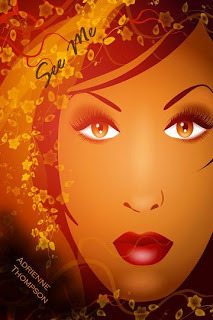
See Me is the story of Olivia Moy, the widow of a beloved and very celebrated author. When we first meet her, she is slowly losing the battle as she struggles to cope her husband’s untimely death. Concerned about her condition, her son insists on taking her to his home where she soon befriends his neighbor. It is not long before Olivia begins to divulge the secrets of her marriage, secrets that can destroy her husband’s legacy and her world.
From the Author:See Me deals with two very serious subjects: domestic violence and mental illness. I was compelled to write this book because of my own experience with domestic violence and my memories of a brilliant relative who suffered from mental illness. When reading this book, I want the reader to feel the emotions and the turmoil of the characters and to realize that for many people, what is found in this book is a daily reality.
What readers are saying about See Me:“This is an amazing story. I kept reading until I finished it in just a few hours. I hated for it to end. I can hardly wait for the next book.” – Margie Nesby“Awesome read!!!” – Jennifer James“WOW, when I started reading this book, I couldn't stop!!!” – Alicia P.
Behind the Scenes:One of the main characters in the book was a famed author and poet. I had to create poetry to include in the book and I had to create the poetry from the prospective of a man who is deeply in love with a woman (something I obviously know nothing about). I truly enjoyed that part of the creative process as I am a poet at heart. Here’s an excerpt from one of the poems:
“I close my eyes, her breath beckons my surrender. It is she, not me, who matters. I feel her touch from afar, knowing every line and ridge of her fingerprint, committing to memory every inch of her beauty. Her soft murmurs and moans are a symphony to my ears. It is Olivia and Olivia alone that I need. My greatest desire is her nearness. Olivia is my divine pleasure...”
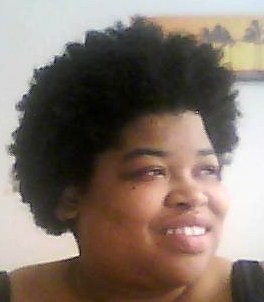
Adrienne Thompson is the divorced mother of three, and the doting grandmother of one precious little boy. She resides in Arkansas and when she's not writing, she works as an RN. She is also the author of Bluesday, Been So Long, When You’ve Been Blessed (Feels Like Heaven), Lovely Blues (Bluesday Book II), and See Me.You can learn more about Adrienne and her books at: http://adriennethompsonwrites.webs.com
See Me currently available on Kindle, Nook, and Kobo.
Don't have a KINDLE?
 Download a FREE Kindle APP
Download a FREE Kindle APP and enjoy your ebooks on PC, Mac, iPad, Android and smartphones.
and enjoy your ebooks on PC, Mac, iPad, Android and smartphones.
Published on November 06, 2012 00:00
November 5, 2012
#BookReview The Bodyguards of L.A. County Series by Cate Beauman
 Morgan's Hunter by Cate Beauman
Morgan's Hunter by Cate BeaumanMy rating: 5 of 5 stars
Who wouldn't love spunky Morgan and taciturn, but oh so hunky Hunter? Morgan has suffered a tragic loss. Her beloved friends were mysteriously killed while researching in a national park.
Hunter has also suffered tragic grief when his unit is ambushed in Afghanistan, resulting in the death of his best friend.
While Morgan frets about her missing friends, Hunter's only job is to keep Morgan safe. He does not share her enthusiasm for either wildlife studies nor snooping at the ranger station for clues. Neither can tolerate each other while being forced to live in close quarters.
Sparks fly as danger stalks, and Morgan finds out the hard way the depth of Hunter's protective feelings and how much he cares.
An exciting story of survival and healing with a healthy helping of sweet scenes. I especially love the tinfoil rings improvised from campground trash. An awesome debut novel from an author to look forward to.
 Falling for Sarah by Cate Beauman
Falling for Sarah by Cate BeaumanMy rating: 5 of 5 stars
An emotional journey from friendship to true love. Sarah's husband Jake was killed in Afghanistan while his best friend Ethan took his place in the delivery room. The day Sarah brought baby Kylee home, she learned about Jake's death. Fortunately Ethan was on hand to comfort her.
A rapist with a fetish for blonde women stalks Sarah. Ethan must fight his growing feelings for Sarah while protecting her from an unknown enemy.
What I liked about this book was the push and pull of their relationship as it changed from platonic friendship to romantic love. They teetered between unable to resist to unwilling to risk losing their comfortable friendship.
Ethan's scene holding Kylee while viewing the ultrasounds was the most tender and touching moment. I just knew he would never play favoritism for his own baby above Kylee. To me, a man with a big heart is worth more than all the money and talent in the world. And Ethan is my type of hero, worried about his own ability to give Sarah a happy family, while wanting so desperately to have her in his life.
 Hailey's Truth by Cate Beauman
Hailey's Truth by Cate BeaumanMy rating: 5 of 5 stars
Hailey's got big trouble, only she's too blinded by guilt to see it. Austin knows the score, but he's afraid Hailey would push him away. Both of the characters are young and hyper emotional. They swing between blaming the other and shutting off their feelings.
The danger surrounding them is very real and frightening. Austin tries to protect Hailey, but she refuses to believe the truth about her brother and his associates.
In a tightly knit plot full of cruel and vicious scenes, Hailey wanders in a haze of charitable feelings for the main villain, believing him to be a good-natured philanthropist, while Austin fights his to control his feelings for Hailey.
The ending for this fast paced book is explosive and unforgettable with a dangerous and thrilling covert rescue operation.
View all my reviews
Don't have a KINDLE?
 Download a FREE Kindle APP
Download a FREE Kindle APP and enjoy your ebooks on PC, Mac, iPad, Android and smartphones.[image error]
and enjoy your ebooks on PC, Mac, iPad, Android and smartphones.[image error]
Published on November 05, 2012 00:00
November 4, 2012
#Writertip How to Avoid the Second Book Slump

Are you experiencing a second book slump? Here are some tips on how to get the juices flowing again.
The first book, like a first baby, is a magical and thrilling experience. Whether you’ve announced it to your family, or secretly tapped the keys on your laptop, the beginning was full of wonderful firsts. From the first line to the first critique partner, to the first finished draft and the first customer. Everything was new and exciting. The first 5-star review! The first 1-star. The first interview and the first royalty check.
Expectations have been set and now you eagerly, or maybe reluctantly, begin book #2. Here are five ways to avoid the dreaded sophomore slump or the paralysis that can creep into the process of releasing the second book.
1. Divorce your first book. The first book was a process of discovery. You’ve lived in your first book for years, perfecting it and polishing it until the characters and scenes became a part of your life. You were able to explore different angles, perhaps take the plot in an unforeseen way. Without any deadlines, you became immersed in your characters’ lives. Now, with a second book, you find it hard to see how you can become as close or attached to the characters and plot as you did before.
As harsh as it might seem, the best thing for you to do is to divorce your characters or slay them in your mind. They are done with. Gone. There is nothing you can do to change their outcome. They’ve gone to that happy land across the great divide. The same holds true to the plot of your first book. Yes, you might have a better ending, or a more clever twist. Let it go.
Even if you are writing a series, the static ending of the first book must not impinge on the life of your second book. The most important is to let the second book of the series breathe on its own, and that means giving it a fresh start independent of the first book. Take it in a new direction by forgetting the first book.
2. Stop looking over your shoulder. Now that you’ve published, you are keenly aware of such things as sales ranks, release cycles, and what other authors are doing. Perhaps you’ve joined a writer’s group to share successes and support each other in marketing and sales. Someone in your group pushes out a new book, another writer reached a new ranking, and a third one wrote five thousand words a day and is finished with her next draft.
Take a deep breath. You’re not in competition with your fellow writers. The writing business is a marathon, not a sprint. Think of how much time you took to develop the characters of your first book, to become embedded into the setting, to spin the plot. Do not shortchange the second book by speed-dating it out the door before it is ready. Remember, everyone has his or her own pace. Nurture yours and be happy for those around you. They have their good days and bad, and so do you.
3. Push aside procrastination. When you wrote your first book, you were happily carefree from responsibilities such as marketing, social networking and managing the business side of writing. Your mind was wrapped around the intricacies of scene development and your thorniest problems were how to get out of a plot hole or ensuring enough emotion in a critical scene.
With the second book, unfortunately, distractions abound. You’re busy with blog tours, interviews, tweeting and engaging your readers. Marketing such as giveaways and book signing eat up your time. A day can quickly go by, and another, then a week where you have not touched nor handled your second book, much less given a thought to the characters or heard from them, for that matter!
I’m not good at practicing what I’m about to preach, especially since I love social networking, emailing and online chatting. But, IF you’re going to have a second book, you must force yourself to shut off the Internet, sit in front of your laptop or pad of paper and write!
4. Bury Expectations. Ah, the monster of high expectations. Now that your first book is out and perhaps receiving rave or not so rave reviews, you feel the heightened pressure of making your second book better than the first. Perhaps readers are eagerly waiting, or reviewers are panning your book. Either way, you are determined not to make the same mistakes of your first book.
Your first book was neither as great or as horrible as you think. Some readers who loved your first book will hate your second book. Maybe some others might love it better. You cannot control people’s responses to your books. Yes, the pressure is higher if you’re especially successful. People might be breathing down your neck to read your next book, or maybe they are waiting for you to fail. Perhaps you feel that competitors are jealously nipping at your heels while fans are worried whether you can deliver. Yes, even positive expectations can produce anxiety. But tough noogies. You must ignore these expectations and work on what you can control, your second book.
5. Write for Yourself. You’ve read the reviews, both good and bad, and been inundated with well-meaning advice. You know that Christians hate sex scenes, but that’s all your characters seem to want to do. Your topic is about a sensitive racial, religious, or social issue. And horrors, you wonder what would happen if either your father’s golfing buddies or your mother-in-law’s yoga group were to read your book. Your husband tells you to write sci-fi, and your son says nobody wants to read about a loser (he meant your character, but you can’t help thinking he’s talking about the author). Now that word is out among your non-writing family and friends that you’re an author, everyone has suddenly become a writing critic.While you can’t bury yourself in an igloo and hibernate, you can remind yourself that you’re the author and your characters will damn well do as they please, not what your mother wants, or your best critique partner suggests, or even the all holy genre rules demand.
Every writer does need feedback. But it should be taken on your terms, not someone else’s. Your book is your vision.
Some practical steps on how to receive feedback without paralysis are: 1) resist the urge to talk about your unformed book. There’s a reason God tucks a baby inside the mother’s womb for nine months so he/she can develop in privacy. 2) Write the first draft as if no one will ever see it. Tell yourself you will toss it all or that it will no doubt be completely revised. 3) Politely think for every person who gives you unsolicited advice that they should go ahead and write their own book. Who knows? They might have the next blockbuster. 4) When you’re ready, encourage your critique partners to hit you between the eyes with everything they don’t like about your book. Let it all sink in, but do not change anything. Read and absorb their crits and let it fallow or fester. 5) Work on your next revision without looking at crits. The changes you make are now yours, even if it had originally been suggested by someone else. The fact that you incorporated it organically, rather than looked through a checklist of who-said-what meant that the final product is yours. You will be stronger and more assured that you took the right direction, but most importantly, you own the story and you were true to yourself.
So get out there and swing for the fences. You can and will successfully finish your second book and avoid the sophomore slump. I’ve heard there’s a third book bounce. So every step you take to push out your second book makes you that much closer to the nirvana of book number three.
What about you? Have you finished a book and are now working on a second book? Do you feel differently about your second book? Please leave a comment.
My second novel, Broken Build (Silicon Valley Romantic Suspense), was recently published on Amazon. I just completed the first draft to my third novel, Hidden Under Her Heart.
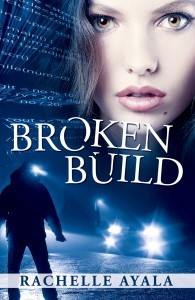 Rachelle Ayala’s Blog: http://www.rachelleayala.comFacebook: http://www.facebook.com/rachelleayalawriterTwitter: http://twitter.com/AyalaRachelle
Rachelle Ayala’s Blog: http://www.rachelleayala.comFacebook: http://www.facebook.com/rachelleayalawriterTwitter: http://twitter.com/AyalaRachelle
Published on November 04, 2012 00:00
November 3, 2012
The Reviewer is In Progress Report
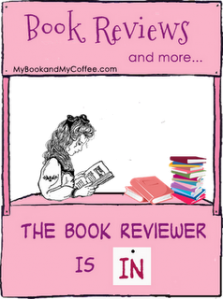
Where did October go? By all standards, it was a great month for Michal's Window and Broken Build. Total sales for Michal's Window was 2358 (Amazon and Barnes & Noble) and 908 for Broken Build. [Broken Build also had 16571 free downloads in October].
But the best news is that I completed the first draft for my next novel, Hidden Under Her Heart. It was an awesomely emotional journey for me. Maryanne and Lucas are two misfits, but what a dynamic pair. Unlike Broken Build, this story is focused more on character emotional development. It starts like a typical romance with a touch of humor, but takes a turn to the dark side when events spin out of control. Maryanne's flaws are directly responsible for the calamities she suffers. I did not sugarcoat this character, but tried to make her as realistic as any modern, educated woman would be. The cover shows a woman hiding her face and signifies the theme that hidden wounds will never heal.
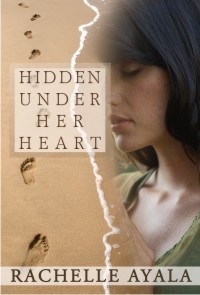
How did I do with Book Reviews I promised? Last time I featured five books on my "to review" list but I've only reviewed one,
 Roll The Dice by Mimi Barbour
Roll The Dice by Mimi BarbourI'm about 89% of the way through with
 Scent of Triumph: A Novel by Jan Moran
Scent of Triumph: A Novel by Jan MoranIt is a fascinating account of a strong heroine pulling herself from the wreck and ruin of World War II to provide for what is left of her family. I love the heroine and all the trials she goes through makes her stronger, but I don't want the book to end.
I also reviewed the following books I hadn't planned on reading.








The following books from last report stay on my list, and I'll admit that I'm still reading Diana Gabaldon's Voyager.
 Through These Veins by Anne Marie Ruff
Through These Veins by Anne Marie Ruff Hyde, an Urban Fantasy by Lauren Stewart
Hyde, an Urban Fantasy by Lauren Stewart Dancing Naked in Dixie by Lauren Clark
Dancing Naked in Dixie by Lauren Clark"The Book Reviewer is In" is a meme at Ara's Website. Don't forget to add your site in the comments below and we'll encourage everyone to visit too.
Don't have a KINDLE?
 Download a FREE Kindle APP
Download a FREE Kindle APP and enjoy your ebooks on PC, Mac, iPad, Android and smartphones.
and enjoy your ebooks on PC, Mac, iPad, Android and smartphones.
Published on November 03, 2012 00:00
November 2, 2012
#BookChat Always & Forever by Chantel Rhondeau
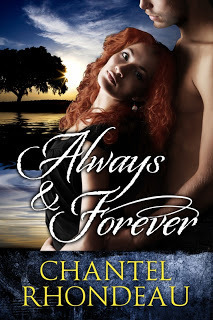
SynopsisLilly Price is a former socialite, running from a horrible past. When a man broke into her house and attacked her one night, her fiancé went missing, presumed dead. Suspicion turned to Lilly when the police discovered her motive for murder, that Charles had been physically abusing her. With the assumption that she hired a hit man to rid herself of Charles, Lilly spent two months in jail awaiting trial. The circumstantial evidence against her was too shaky for a conviction, so Lilly fled her former high-society life to settle in a small lakeside community, hoping to rebuild her life in anonymity.
Zach Woodbridge had problems of his own, widowed three years earlier after an unhappy five-year marriage. When Zach’s family insisted he start dating again, he came up with a plan to hire Lilly, a pretend girlfriend for the summer. All he wants is to write his novel in peace, but his mother’s likely to drive him mad if he doesn’t appear to be making an effort at love. It doesn’t take Zach long to realize spending time with Lilly only on family outings will not be enough for him. When Lilly notices a car following her and then receives a threatening phone call, the couple wonders whether Charles died at all...and what lengths he will go to in an effort to get Lilly back.
Words from the author:Although a big talking point of my book it the fact that Lilly is a woman healing from a domestic violence situation, the most important part of my book (and what made me want to write it) is the relationship between Zach and Lilly. Zach is a sweet, compassionate man who is just the right person to show Lilly what love is really about. At the same time, Lilly is the perfect counterpart to prove to Zach that trust and honesty aren’t as black and white as he thought they were.
Reader Reactions: “Captivating, exciting, suspenseful and hot are just a few words I can safely use to describe this book. Chantel Rhondeau had me enthralled from the very first pages, and I found it extremely difficult to put this one down.
Domestic abuse has always been a touchy subject for me, and I am so glad Chantel depicted it so very well.”
“Throughout the book, I wasn't sure who to trust. There are some sinister characters who make for some chilling reading. If you're currently being stalked, you may want to give this a miss as the tension in those scenes would be unbearable for anyone in that situation.”
“The love story between Lily and Zach was great. Lots of sizzle and romance with the perfect amount of passion. This story has it all and will keep you happily engrossed from the beginning to the end. I highly recommend this book!”
Behind the Scenes:
Shortly after publishing Always & Forever, Anora McGaha contacted me (editor of the online magazine Women Writers, Women Books) through Twitter. They were posting articles through the month of October to raise awareness about Domestic Violence and asked me to write one explaining why I chose to write about an abused woman and what reader reactions have been. I submitted When Love Twists To Abuse and it posted October 24th. It was sad but also heartening to read the stories of the other women at the magazine (most of whom have overcome being abused). It was also an opportunity to try something different (as I'd never written a magazine article before or even really considered it) and I appreciated being included in their efforts to raise awareness.
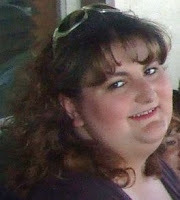 Readers can find out more about Chantel at her Amazon Author Page
Readers can find out more about Chantel at her Amazon Author Page
Always & Forever is available at Amazon and Barnes & Noble
Website: http://www.chantelrhondeau.comTwitter http://twitter.com/ChantelRhondeauFacebook: http://www.facebook.com/ChantelRhondeauGoodreads: http://www.goodreads.com/author/show/6444354.Chantel_Rhondeau
Don't have a KINDLE?
 Download a FREE Kindle APP
Download a FREE Kindle APP and enjoy your ebooks on PC, Mac, iPad, Android and smartphones.
and enjoy your ebooks on PC, Mac, iPad, Android and smartphones.
Published on November 02, 2012 00:00
November 1, 2012
Why I'm Sitting Out #NaNoWriMo #amwriting

NaNoWriMo or November is National Novel Writing Month is a month long online writing party. Writers worldwide sign up at nanowrimo.org and get their badges, clean their laptop keyboards, and join writing teams to cheer each other on. It's a great experience, but last night I finished a 108K first draft for Hidden Under Her Heart. Talk about bad timing... and the reason why I'm not jumping in this year.
I'm going to start PlotWriMo a month early and get my Christmas shopping done.
PlotWriMo is Martha Alderson's creation as an antidote to NaNoWriMo hangover. Having done double NaNo last year I know the feeling well. The adrenaline and caffeinated hormones of whipping words into a word processor result in a writer's high. But once the ticker tape has been cleaned up and the balloons in Macy's Thanksgiving Day parade have popped, all that's left is one hot, broken mess:
An oozing warmth permeated the paper towel. How did she get stuck with this? She breathed out with her nose, held the bag at arm’s length, and swept the paper towel into the bag. [Broken Build page 40]
So what does PlotWriMo do for me? It is a month of meditation and reflection, of letting themes emerge and marrying the characters' emotions with mine. It is rest and relaxation, equally as important as work, work, work. As any athlete knows, the resting period is where the muscles grow, the endurance increases and the mind is strengthened.
So while the NaNo ants are toiling, I'll be sipping hot cider and reading Martha's books. Good luck to all the WriMos and may your 50000 words fly off the keys.
The archive to December 2011 PlotWriMo can be found on Jacketflap.com. Martha's videos with friendly backdrops of beautiful Santa Cruz are on her YouTube channel. Happy writing!
Don't have a KINDLE?
 Download a FREE Kindle APP
Download a FREE Kindle APP and enjoy your ebooks on PC, Mac, iPad, Android and smartphones.
and enjoy your ebooks on PC, Mac, iPad, Android and smartphones.
Published on November 01, 2012 00:00
October 31, 2012
#BookChat The Priest by Monica La Porta
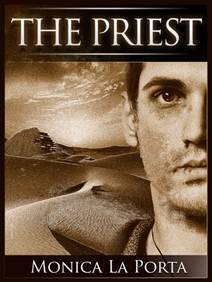 Synopsis
SynopsisMauricio is a slave. Like any man born on Ginecea, he is but a number for the pure breed women who rule over him with cruel hands. Imprisoned inside the Temple since birth, Mauricio has never been outside, never felt the warmth of the sun on his skin. He lives a life devoid of hopes and desires. Then one day, he hears Rosie sing. He risks everything for one look at her and his life is changed, forever. An impossible friendship blossoms into affection deemed sinful and perverted in a society where the only rightful union is between women. Love is born where only hate has roots and leads Mauricio to uncover a truth that could destroy Ginecea.
From the authorI am an avid reader of science fiction and fantasy, consequently my stories tend to have elements from both genres with a spin on the what-if theme. A few years ago, I read an article explaining how, in a near future, medical science would make possible for women to procreate other women without male contribution. My imagination ran wild with possible scenarios about the kind of society that would come out from such environment and a dystopian world came alive. My Ginecean Chronicles are set on an alternate version of Earth, Ginecea, where women rule over enslaved men and love between opposite genders is seen as a perversion. Since I like character-oriented stories where the heroes and the heroines grow through hardship and impossible choices, I made Mauricio and Rosie fall in love with each other and pay the consequences.
Reader's reactions “Their story is one of triumph of the one thing no one can take away from us, love. Despite the stark setting, the emotions are palpable. You feel for these two wonderful characters. You will be overwhelmed by outrage at times, you will laugh at the levity that's a testament to the spirit of these people, and you will shed tears born of different emotional extremes.” J.R.
“Her vivid tale of love in a time of oppression is a compelling story for both its fascinating reversal of dominance between men and women and its two wonderfully drawn main characters.” G.H.
“Original and beautifully written. Vivid descriptions but not heavy handed. Great world building. I felt completely immersed in the believable and highly unorthodox society of Rosie and Mauricio. Some of the scenes are incredibly poignant and heart rendering. One of my favourites was when Mauricio is put in a room with a window, and sees sunlight for the first time in his life.” V.E.
Behind the scenesIn 2010, while I was writing Pax in the Land of Women, two characters, Rosie and Mauricio, came to life. I fell in love with them and thought their story deserved to be told, but Pax was already on its way to completion, and there wasn’t any space left in it for them. November came along and with it Nanowrimo, the one month extravaganza where authors pledge to the insanity of writing until they drop. It was perfect timing and I immediately jumped at the opportunity to write 50,000 words around the slave and the President’s daughter. During those thirty days, my husband and I settled on a nice routine, where he played Red Dead Redemption and I sat by him on the couch and wrote The Priest. To this day, I can’t read a word from The Priest without humming the songs from RDR’s soundtrack.
The Priest is available on Amazon.com
You can find out more about Monica La Porta on her Amazon Author Page

Don't have a KINDLE?
 Download a FREE Kindle APP
Download a FREE Kindle APP and enjoy your ebooks on PC, Mac, iPad, Android and smartphones.
and enjoy your ebooks on PC, Mac, iPad, Android and smartphones.
Published on October 31, 2012 00:00



